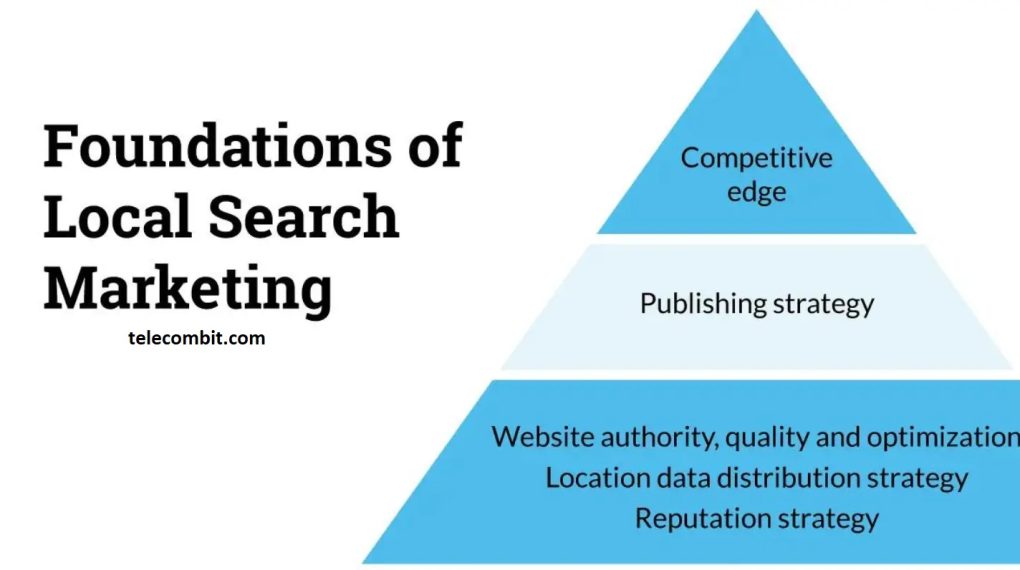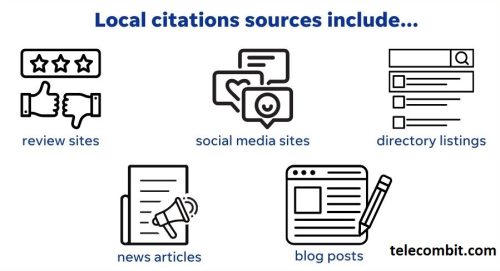Local SEO Strategies for Small Businesses
In the digital age, small businesses face the ongoing challenge of standing out among competitors in their local markets. To overcome this hurdle, it is crucial for them to embrace local SEO (Search Engine Optimization) strategies. By implementing effective tactics, small businesses can improve their online visibility, attract local customers, and drive valuable foot traffic to their physical locations. In this comprehensive guide, we will explore a variety of powerful local SEO strategies that can help small businesses thrive in their communities.

Understanding Local SEO: A Foundation for Success
Local SEO refers to the process of optimizing a business’s online presence to attract more local customers. It involves targeting specific geographical locations through strategic optimization techniques, enabling small businesses to connect with their target audience when they search for local products or services. By understanding the importance of local SEO and its benefits, small businesses can make informed decisions to improve their online visibility and gain a competitive edge.

Major benefits of owning your online business include flexibility, scalability, control over your destiny, reduced overhead costs, and the potential for global reach and increased revenue.
Optimizing Google My Business: Your Online Business Card
Google My Business (GMB) is a free tool provided by Google, allowing businesses to create and manage their online presence across various Google platforms. Optimizing your GMB listing is crucial for local SEO success. Here are some key strategies to employ:
- Claiming and verifying your Google My Business listing: This ensures you have ownership and control over your business information on Google.
- Optimizing your business information: Provide accurate and up-to-date information, including business name, address, phone number (NAP), website URL, hours of operation, and business category.
- Encouraging customer reviews and managing feedback: Actively seek reviews from satisfied customers and respond to both positive and negative feedback promptly and professionally.
- Utilizing Google Posts for promotions and updates: Share timely and engaging content, such as special offers, events, or blog posts, to attract potential customers and keep existing ones engaged.

Localizing Website Content: Catering to the Local Audience
Creating website content that resonates with the local audience is vital for local SEO success. Here are some strategies to implement:
- Incorporating location-specific keywords: Conduct thorough keyword research to identify relevant local search terms and incorporate them naturally throughout your website’s content.
- Creating localized landing pages: Develop dedicated landing pages targeting specific locations or regions to capture local search traffic effectively.
- Including NAP (Name, Address, Phone number) on every page: Ensure that your business’s NAP information is prominently displayed on every page of your website, usually in the footer section.
- Ensuring mobile-friendliness and fast loading times: Optimize your website to deliver an exceptional user experience across various devices, ensuring fast loading times and easy navigation.
- Implementing structured data markup for local business information: Utilize schema markup to provide search engines with structured data about your business, including location, contact details, opening hours, and more.

Building Local Citations: Strengthening Online Presence
Local citations are online references to your business’s NAP information. Building local citations helps improve your online presence and local search rankings. Here’s how to effectively build local citations:
- Submitting accurate business information to local directories: Ensure that your business details are consistent and accurate across various local directories, including Yelp, Yellow Pages, and industry-specific directories.
- Consistency in NAP across all directories: Maintain consistency in your business’s NAP information, including abbreviations, formatting, and punctuation, to avoid confusion and enhance credibility.
- Targeting industry-specific and local directories: Identify and submit your business information to relevant directories that cater specifically to your industry and local area.
- Earning citations from authoritative local sources: Seek opportunities to earn citations from trusted and authoritative local sources such as local newspapers, blogs, and community websites. This can be achieved through partnerships, sponsorships, or by providing valuable content that local sources find worth sharing.

Leveraging Online Reviews: Building Trust and Credibility
Online reviews play a significant role in shaping consumers’ opinions and influencing their purchasing decisions. Here are strategies to leverage online reviews effectively:
- Encouraging customers to leave reviews: Actively encourage satisfied customers to leave reviews by providing links or prompts on your website, social media, and email communications.
- Responding promptly to reviews, both positive and negative: Show appreciation for positive reviews and address any negative feedback promptly and professionally. This demonstrates your commitment to customer satisfaction and builds trust.
- Showcasing positive reviews on the website: Highlight positive reviews on your website to showcase social proof and encourage potential customers to choose your business.
- Monitoring and addressing fake or spam reviews: Regularly monitor your online review platforms to identify and report any fake or spam reviews that may harm your business’s reputation.

Conclusion
In the ever-competitive landscape of local businesses, implementing effective local SEO strategies is crucial for small businesses to thrive and succeed. By understanding the importance of local SEO and implementing the strategies outlined in this guide, small businesses can significantly improve their online visibility, attract local customers, and drive valuable foot traffic to their physical locations.
Remember, local SEO is an ongoing process that requires consistent effort, monitoring, and adaptation. Stay up to date with the latest trends and algorithm updates in local search to ensure that your strategies remain effective. Regularly analyze and measure the results of your efforts, making necessary adjustments to optimize your local SEO campaigns.




